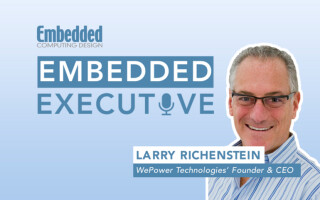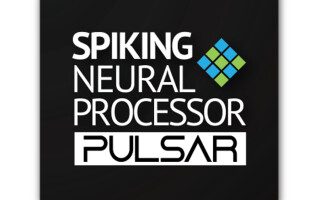Khronos Calls for Industry Feedback on Potential New Standard for Heterogeneous Communications
January 16, 2019
News

The Takyon API, proposed by Abaco Systems, is a proposal to unify low-level point-to-point communication and signaling
PORTLAND, OR — January 16, 2019 — The Khronos Group, an open consortium of leading hardware and software companies creating advanced acceleration standards, today announces the formation of an Exploratory Group to gauge industry interest in a potential new open standard that could transform the way high performance embedded computing (HPEC) applications are developed. The Takyon API, proposed by Abaco Systems, unifies low-level point-to-point communication and signaling functionality with the aim of reducing application complexity, minimizing development cost, and speeding time-to-market. More details and resources on the proposed Takyon API, including a user's guide and a free open source implementation, can be found at the Takyon Resources Page.
Khronos has created an Exploratory Group that is tasked to assess the degree of industry interest in making Takyon an open, royalty-free standard. If there is sufficient interest, then Khronos will create a Working Group and invite any interested company to join Khronos for a voice and a vote in creating and evolving Takyon as a multi-vendor, open standard API under Khronos’s proven, multi-company governance process. If you are interested in providing feedback on the Takyon Proposal, please visit the Exploratory Group landing page.
“Many cross-platform communication standards already exist, but, for the most part, they are either focused on a particular interconnect hardware, homogeneous HPC architecture, or locality—inter-thread, inter-process, inter-processor, or intra-application,” said Peter Thompson, vice president, Product Marketing at Abaco. “Each existing standard has different design methodologies, strengths, and weaknesses. Some are very complex, requiring hundreds of lines of code just to handle simple concepts. Others intend to be simple but get deceptively complex in real-world use cases. Still others mask important, underlying features which can ultimately impact latency and determinism.”
“There is no single standard that fits all localities, features, and strengths,” Thompson continued. “The result is high development costs, ill-fated shortcuts, and confused embedded HPC developers. We believe that this effort with Khronos has the potential to address this problem and to lead to the development of a key open standard.”
Takyon, which is a new API for point-to-point communications widely used in complex embedded HPEC applications, could provide developers with the ability to quickly develop high-performance, scalable, portable, and fault-tolerant applications running across complex systems. Takyon builds on Abaco’s expertise in advanced embedded software, among which is its AXIS software development environment--the foundation for Takyon.
The target user for Takyon is the HPEC engineer who is focused on algorithm development--not communications--and needs the performance and flexibility of low-level point-to-point protocols with the simplicity of high-level point-to-point methodologies. The Takyon API is based on just five communication concepts and, therefore, only has five core functions, making it easy to learn and use.
”Khronos has created a methodical exploratory process to enable us to take well-formed proposals for new open standards and evaluate industry interest before we create a Working Group to develop the standard itself. This process allows us to focus the resources of our members, and of the industry, on efforts that stand an excellent chance of being widely-adopted and having a positive impact on the industry,” said Neil Trevett, Khronos president. ”We thank Abaco for the significant effort they have put into preparing the Takyon proposal, and we look forward to engaging together with the embedded industry to gauge the interest in evolving this potential new open standard with the involvement of the industry.”
About the Khronos Group
The Khronos Group is an open industry consortium of over 140 leading hardware and software companies creating advanced, royalty-free, acceleration standards for 3D graphics, Augmented and Virtual Reality, vision and machine learning. Khronos standards include Vulkan, OpenGL, OpenGL ES, OpenGL SC, WebGL, SPIR-V, OpenCL, SYCL, OpenVX, NNEF, COLLADA, OpenXR and glTF. Khronos members are enabled to contribute to the development of Khronos specifications, are empowered to vote at various stages before public deployment and are able to accelerate the delivery of their cutting-edge accelerated platforms and applications through early access to specification drafts and conformance tests.
About Abaco Systems
With more than 30 years’ experience, Abaco Systems is a global leader in open architecture computing and electronic systems for aerospace, defense and industrial applications. We create innovative, modular solutions based on open standards that are characterized by outstanding price/performance, ultimate rugged reliability and minimal SWaP. Our goal is to be a significant contributor to our customers’ success, partnering with them to reduce cost, time-to-deployment and risk and supporting them over the long term. With an active presence in hundreds of national asset platforms on land, sea and in the air, Abaco Systems is trusted where it matters most. www.abaco.com
Khronos, EGL, glTF, NNEF, OpenVG, OpenVX, OpenXR, SPIR, SPIR-V, SYCL, Vulkan and WebGL are trademarks or registered trademarks of The Khronos Group Inc. OpenCL is a trademark of Apple Inc. and OpenGL is a registered trademark and the OpenGL ES and OpenGL SC logos are trademarks of Hewlett Packard Enterprise used under license by Khronos. All other product names, trademarks, and/or company names are used solely for identification and belong to their respective owners.




